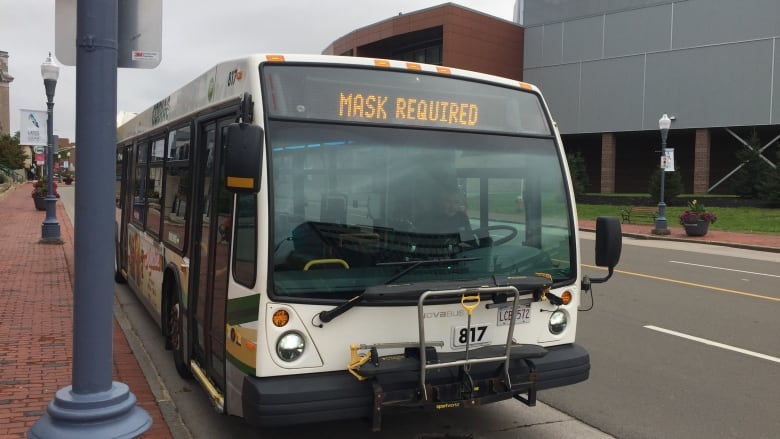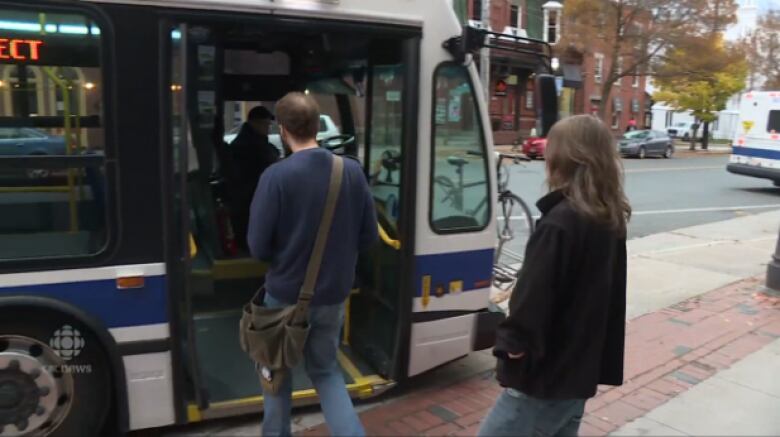With reduced ridership, N.B. municipal bus services continue to feel pandemic pinch
Transit revenue for cities of Moncton and Fredericton just above half of pre-pandemic levels

More than a year after the COVID-19 pandemic started, transit buses in New Brunswick cities arecarrying far fewer people and bringing in less moneythanbefore.
As of August, the city-run transit services forFredericton and Monctonreported transporting on average just overhalf as many passengers as before the pandemic, resulting in a similar drop in revenue.
AsCOVID-19continues to disrupt businesses andschools, a public transit advocate says continued financial support should be coming from the federal and provincial governments to ensuremunicipalities can continue to adequately offer the service.
"There's no question that the transit systems need some financial support from higher levels of government, and they have been getting that to some degree," said Ted Bartlett, president of Transport Action Atlantic.
"But we must not lose sight of the fact that the help is going to be needed on an ongoing basis until we have full ridership recovery."

Codiac Transpo, which serves the greater Moncton region, saw an 85 per cent decline in passenger demand at the beginning of the pandemic,said City of Moncton spokesperson Austin Henderson.
Monthly ridership dropped from 133,560 to less than 20,000 at the start of the pandemic, and monthly revenue fell from about $200,000 to nothing.Codiac Transpo eliminatedfares for the first few months of the pandemic.
Since then, Codiac Transpohas seen a gradual return of passengers,with about 70,000 counted for the month of August.It's alsorestoredservice hours to about 85 per cent of what they were pre-pandemic andalong with other municipal transit services, hasalso brought backallowance for full capacity on its buses.
AsCOVID-19 continues to impact daily life however, Henderson said the city has to wait and see what happens and whether passengers feel safe enough to return to using the bus.
"The reality isthat, on board a bus, if it's a full bus, you can be close to people... that's actually one of the aspects that, that we know we'll need to do moving forward to rebuild that ridership is reassure people that transit is safe," Henderson said.
Getting passengers to return is also a challenge facing the City of Fredericton, said Meredith Gilbert, the city's director of transit and parking.

Ridership dropped by 90 per cent at the onset of the pandemic but has climbed back to about 60 per cent of where it was before March 2020.
"I think we will inevitably have lost some passengers for good," Gilbert said.
"You know, they had to continue to get to work and we had to make cuts to deal with the losses that we were facing and and the reduced ridership demand tied to that.
"So we're really focused operationally on being proactive and reactive as needed as we continue to face the challenges day by day."
Last fall, the province announced the cities of Moncton, Fredericton and Saint John would each receive $500,000, $670,000 and $400,000, respectively, to cover losses their transit services experienced due to the pandemic.
Neither Gilbert nor Henderson would say whether more funding was needed, but acknowledgedthe reduced transit revenue has had an impact on municipal coffers.
"We're all facing funding impacts tied to COVID," Gilbert said.
"The province did step up with the [Safe] Restart funding earlier this year to offset the losses from last year. Certainly we're facing some of those challenges again this year, and... the need will be there.
"Whether that funding comes through or whether those discussions are on the table I think have yet to be determined."
Zoltan Csepregi, aspokesperson for Infrastructure Canada,explained in an email the financial assistance already offered to New Brunswick municipalities through the Safe Restart program, but did not say whether additional funding was planned.
The Government of New Brunswick did not respond to a request about whether it planned to provide more help for municipal transit services.












_(720p).jpg)


 OFFICIAL HD MUSIC VIDEO.jpg)
.jpg)



























































































